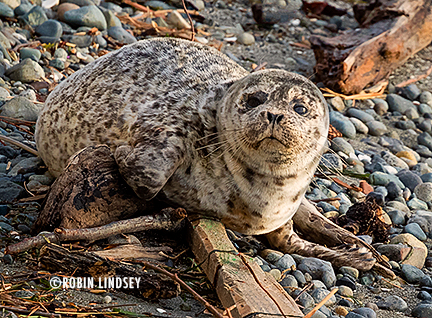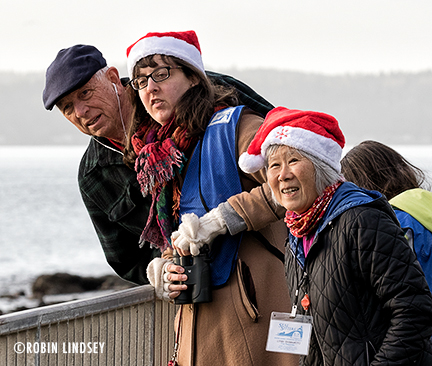Volunteers celebrate Solstice on the beach
Dec/21/16 08:20 PM

Late this morning, Seal Sitters celebrated the arrival of a harbor seal pup who came to rest on a West Seattle beach and enjoy every bit of lingering sunlight. The hotline received a call about a pup close to the sea wall on a public beach, just above the high tide line.
Yellow tape was strung, signs were posted by first responders and volunteers began to arrive. Appropriately enough, the alert pup was nicknamed Solstice.

Solstice appeared in reasonably good health, but potentially has blindness in one eye. Seals can forage quite successfully, however, with limited vision and even complete blindness. Used to navigating and foraging in dark, murky waters, they use their whiskers (vibrissae), each of which contains up to 1,500 nerves, to locate prey by sensing vibrations up to 600 feet away. Seals have the amazing ability to determine the size (within 1.4 inches) and shape of prey with this technique. Read the German scientific study here.
Seal Sitters volunteers stayed until well after dark in brisk temperatures until Solstice finally flopped across the pebbled beach, back toward the cold waters of Puget Sound. After more than a month-long drought in seal pup responses, volunteers were thrilled to help keep Solstice safe while on shore.







